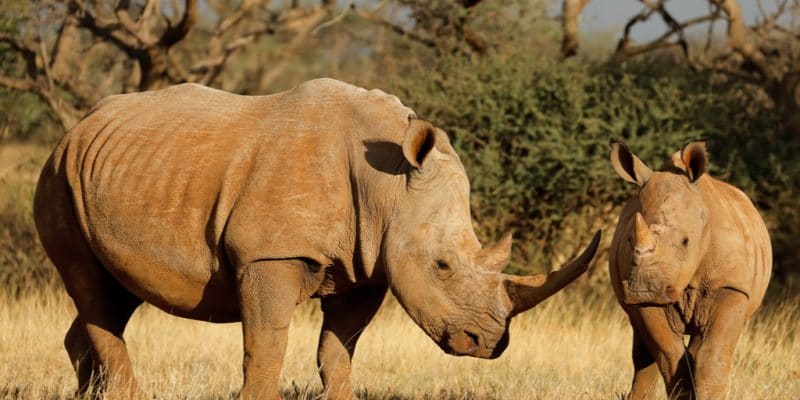The South African government, conservation organizations and local communities have decided to pool their efforts under the "Wildlife Zones" initiative to strengthen the protection of rhinos from poachers.
The noose is tightening around poachers in South Africa. After adopting various solutions to protect national parks, the South African government has decided to join forces with nature conservation organizations to strengthen the protection of rhinos, a species of large mammal that the whole world is celebrating on September 22nd, 2020.
The new plan of the South African authorities will be implemented through the “Wildlife Zones” initiative. Its aim is to bring together nationally proven anti-poaching strategies and technologies to collectively protect South Africa’s black and white rhinos. The country is home to the world’s largest rhino population, 80% according to the International Rhino Foundation.
Positive signals
By concentrating the world’s largest rhino population, South Africa has also become the epicentre of rhino poaching. While the poaching record was observed in 2014 with 1,215 individuals slaughtered for their horns, the situation has improved in recent years. In 2018, 769 rhinos were poached in South Africa and 594 in 2019 according to the government.
These animals are slaughtered for their horns. This fibrous outgrowth is mainly composed of keratin, the same substance that makes up our nails. Rhino horn is sold in Southeast Asia, especially on the black market in China and Japan where it is used in traditional medicine. The “Wildlife Zones” initiative launched on September 22nd, 2020 by the South African Department of Environment, Forestry and Fisheries is intended to strengthen the gains made in the fight against poaching of rhinos.
A program implemented in several phases
The new program will be implemented with the support of the Peace Parks Foundation through funding from the U.S. State Department’s Bureau of International Narcotics and Law Enforcement Affairs (INL); as well as the Dutch, Swedish and British Popular Postal Code Lotteries. “The Wildlife Conservation Zones initiative will provide an innovative mechanism that, while giving authorities a needed advantage over the country’s criminal networks, will help cultivate the sustainability of rhino protection in South Africa and the region,” said Werner Myburgh, Executive Director of the Peace Parks Foundation.
The initiative will be implemented in several stages, the first of which will establish the Environmental Enforcement Fusion Centre (EEFC). This centre of excellence will initially coordinate tactical engagement between the government, rhino owners and non-governmental organizations (NGOs) in South Africa. It will then coordinate national efforts in wildlife conservation zones. A major component of this initiative will be the monitoring, evaluation and adaptation of joint rhino protection interventions.
Field implementation
The second phase of the South African government’s initiative will be the sharing of the knowledge gained to promote both best practices and resource allocation. Phase 3 is a field phase that will focus on the joint protection of the national (South African) rhino herd by implementing strategies, filling gaps and establishing capacity and “basic solutions adapted to the protection of rhinos in each zone”.
“As a first step, private, public and non-governmental organizations will be engaged, through the National Rhino Poaching Control Committee, to formalize the seven wildlife protection zones. In this third intervention, the Wildlife Zones Initiative aims to identify, formalize and establish participatory structures for stakeholder and community engagement,” says Peace Parks Foundation. The final phase will aim to strengthen South Africa’s national wildlife crime intelligence picture by bringing together the best wildlife crime analysts and government environmental conservation departments and agencies.
Jean Marie Takouleu







